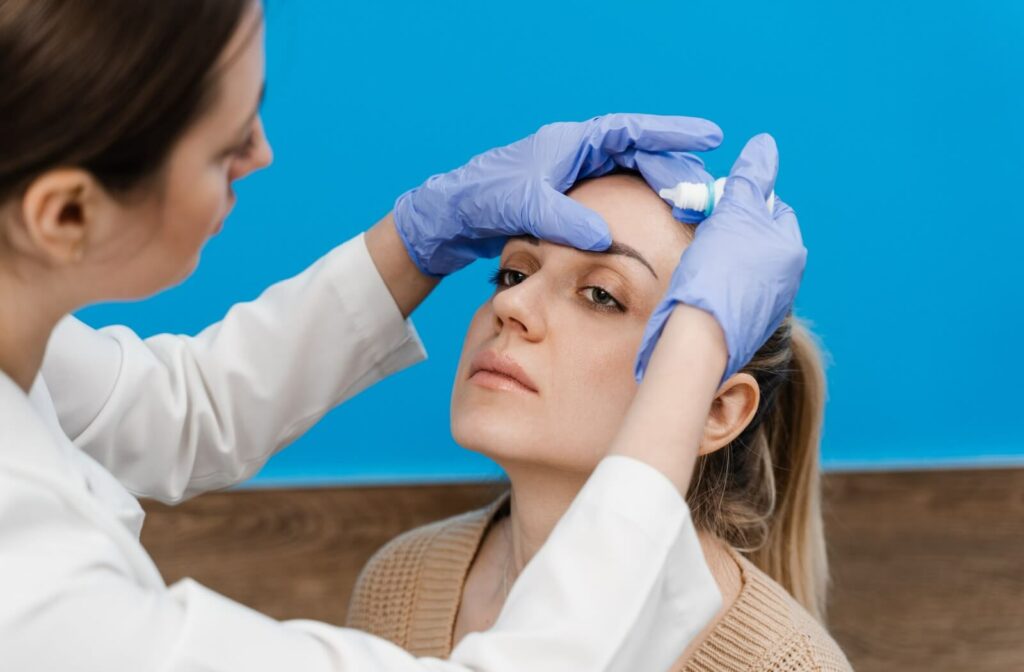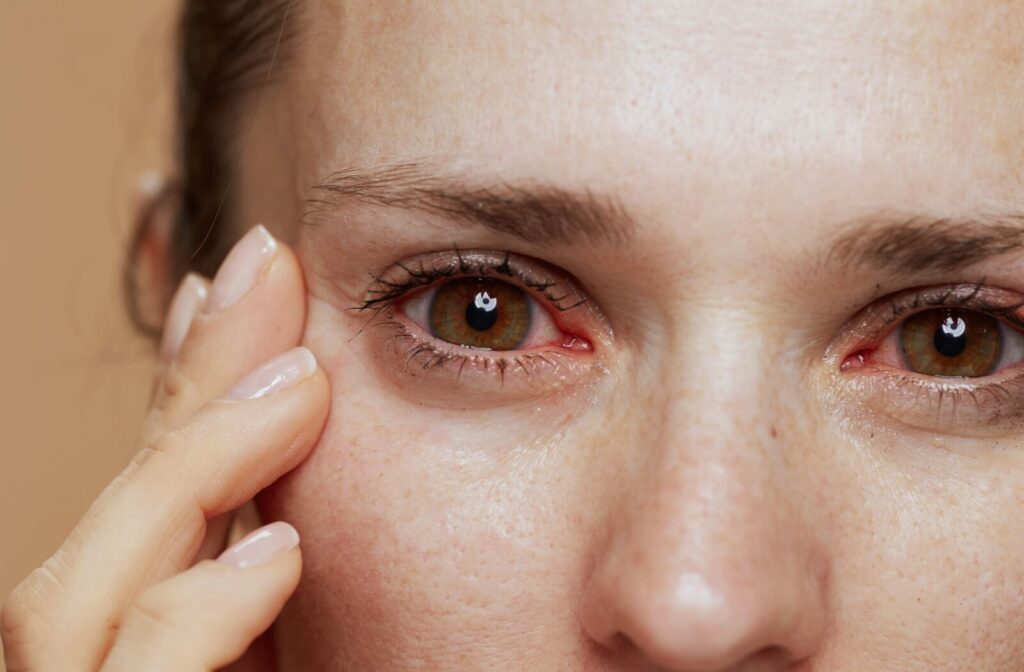If you constantly experience dry, gritty eyes that feel uncomfortable or look red and swollen, you may have chronic dry eye.
Although dry eyes can be frustrating and uncomfortable, they typically do not lead to blindness. However, if left untreated or severe enough, dry eyes can potentially cause long-term damage to the eyes and affect your vision.
What Causes Dry Eyes?
Dry eye is a condition where the eyes do not produce enough tears or the tears evaporate too quickly.
Tears are essential for maintaining healthy eyes as they provide lubrication, prevent infection, and remove debris from the surface of the eye. When there are not enough tears or the quality of tears is poor, it can result in dryness, irritation, redness, and even blurred vision.
Several factors can contribute to dry eyes, including:
- Aging
- Hormonal changes
- Certain medications
- Medical conditions
- Environmental factors like dry air
- Excessive screen time
- Refractive surgeries like LASIK
The Risks of Untreated Dry Eye
While dry eye may not directly cause blindness, it can lead to other complications that impact your vision, including:
- Blurred vision: Dry eyes can cause blurry or fluctuating vision, making it difficult to see objects clearly. This can affect daily activities such as reading, driving or working on a computer.
- Corneal damage: The cornea is the clear outer layer of the eye, and it needs to be kept moist by tears in order to function properly. If the cornea becomes too dry, it can result in damage and scarring that can affect vision.
- Infections: Tears contain proteins and enzymes that help fight off infections on the surface of the eye. When there are not enough tears, this protective barrier is compromised, making you more susceptible to eye infections.
Treatment & Management for Dry Eyes

There are several ways to manage and treat dry eye, depending on the underlying cause and severity of the condition. These include:
- Artificial tears: Over-the-counter artificial tears can provide temporary relief for mild cases of dry eye. They work by supplementing your natural tears and providing lubrication for the eyes.
- Prescription eye drops: If over-the-counter drops are not effective, your doctor may prescribe medicated eye drops that reduce inflammation and help increase tear production.
- Warm compresses: Applying a warm compress to your closed eyelids can help stimulate oil glands in your eyelids, which can improve the quality of your tears. This is especially helpful for people with meibomian gland dysfunction.
- In-office treatments: Professional treatments can help address dry eye at the source, reducing excess bacteria, biofilm, and debris from your eyes. This can help your eyes produce more, higher-quality tears.
If you’re experiencing persistent dry eyes, your optometrist can help determine the underlying cause and determine a treatment plan tailored to your specific needs.
How to Prevent Dry Eyes
There are steps you can take to reduce the severity of your dry eye symptoms:
- Blinking regularly: When staring at screens or focusing on one task for extended periods of time, we tend to blink less frequently, which can cause tears to evaporate faster. Make a conscious effort to blink every few seconds to keep your eyes lubricated.
- Taking breaks from screen time: Taking regular breaks and looking away from screens can prevent eye strain and help your eyes relax.
- Wearing sunglasses: On sunny or windy days, wearing sunglasses can shield your eyes from harsh winds and UV rays that can cause irritation and dryness.
- Staying hydrated: Drinking enough water throughout the day is important for overall health, including eye health. Dehydration can lead to a decrease in tear production, so make sure to stay hydrated.
- Avoiding smoke and dry environments: Smoke and dry air can worsen dry eye symptoms. If possible, avoid exposure to these triggers or use protective measures like a humidifier in your home or workplace.
If these tips don’t seem to help, your dry eye may be caused by an underlying issue that needs to be addressed. Your optometrist can help determine what’s causing your dry eyes and provide effective relief.
Find Relief for Dry Eyes at Total Focus Optometry
At Total Focus Optometry, we understand how frustrating and uncomfortable dry eyes can be. Our team is dedicated to supporting your ocular health. We’ll take the time to understand the root causes of your dry eyes and provide personalized solutions to help bring you relief.
While dry eyes may be a common condition, it can impact your vision and overall quality of life when left unaddressed. Schedule an appointment with us today, and let’s work together to improve your comfort.




